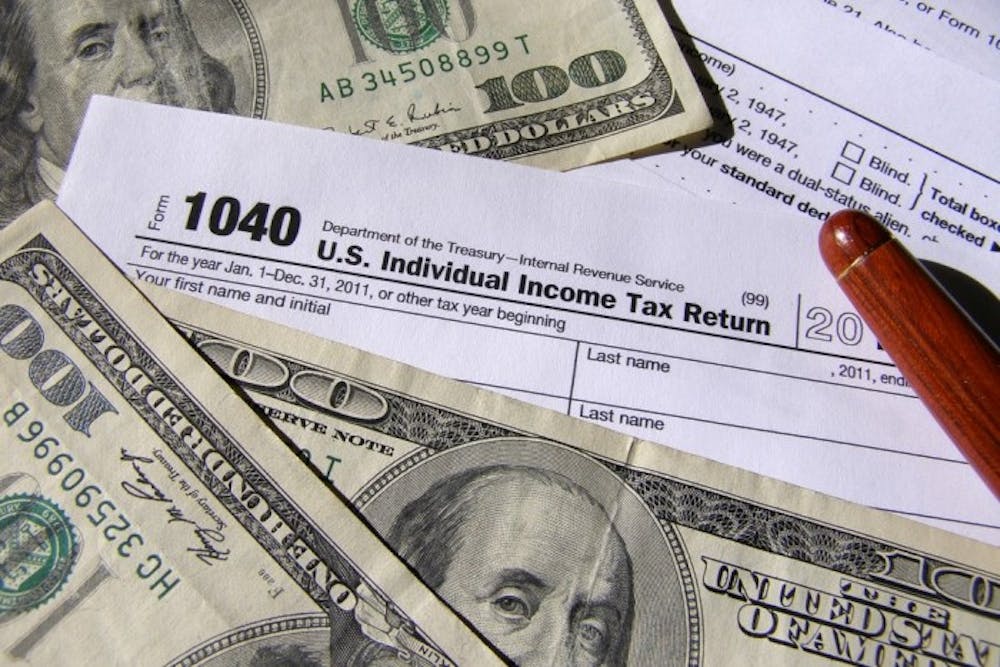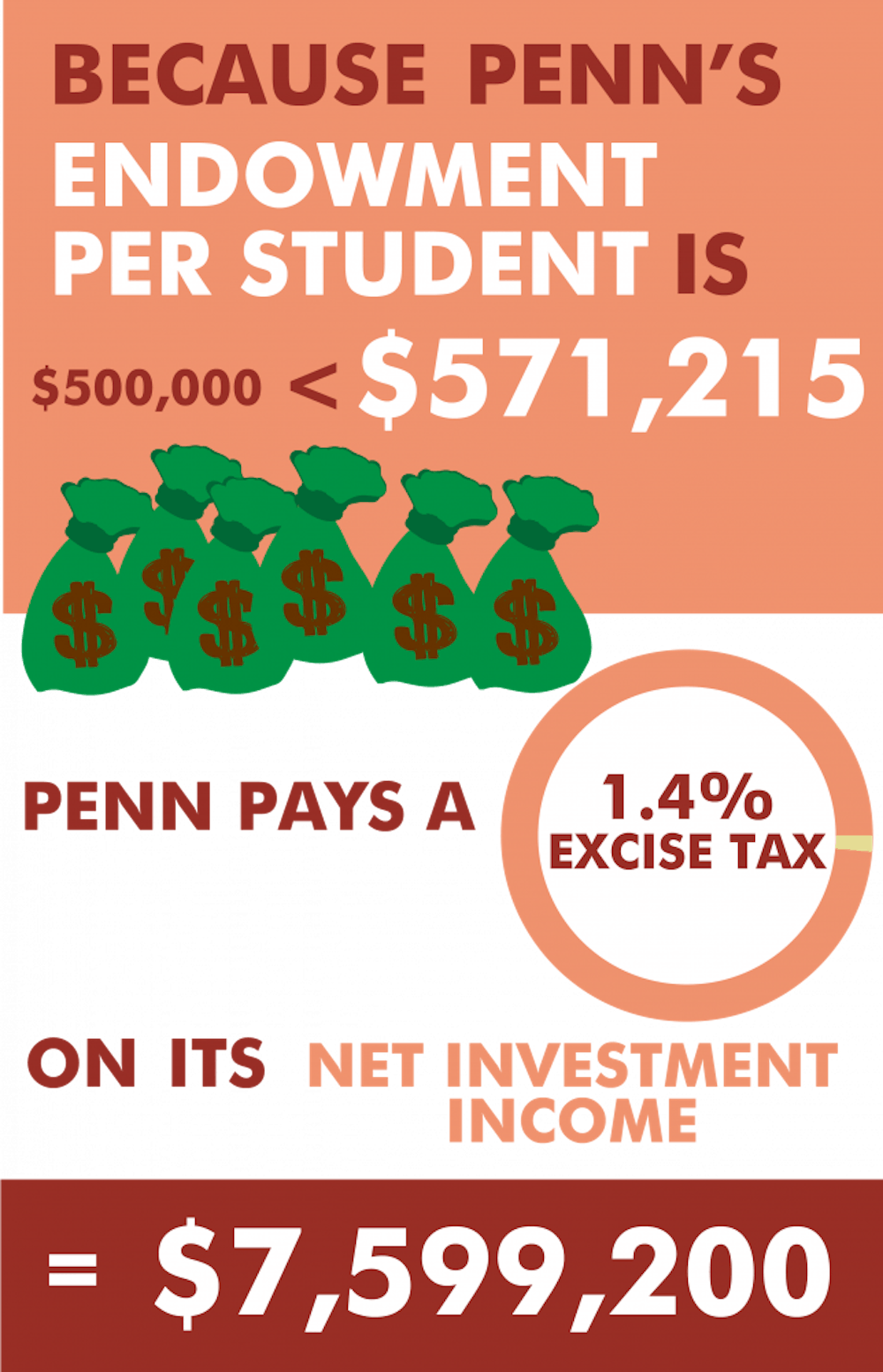
On the first day of the new year, just days after President Donald Trump signed the GOP tax bill into law, many universities across the country became subject to a new excise tax on their multi-billion dollar endowments.
According to calculations from the most current data, Penn's endowment will be susceptible to this statute.
The final version of the bill, which passed in the House on Dec. 20, places a 1.4 percent excise tax on endowments on private universities with endowments of more than $500,000 per student. While Penn's endowment per student in 2016 was $496,301, which would fall just short of the cutoff, Penn's endowment per student in 2017 is $571,215.
“The rationale behind the bill is that someone feels that universities should be penalized for having excess cash,” said Jonathan Sambur, a lawyer who specializes in U.S. federal tax issues at the law firm Mayer Brown.
A large portion of the endowment has also historically gone to support financial aid. In 2017, Penn's annual financial report reported that the endowment accounted for 24.5 percent of operating funds for student aid.
The 1.4 percent tax would be applied to the University's net investment income — which would amount to just under $7.6 million for Penn. Kimberly Burham, managing director of Legislation and Special Projects for the Penn Wharton Budget Model, identified the endowment tax as the section of the tax bill that will have the biggest impact on Penn and other universities.
However, Burham noted that ambiguities still exist when it comes to calculations of the tax because the bill did not prescribe a specific way to count total students, leaving some experts uncertain as to how to assess the impact of the law.
“[The impact] could be different for any university, depending on how they use their endowment,” Burham said.
Although some students on campus opposed this increased excise tax, others saw the cut to Penn's endowment as a justified move in response to partisan attitudes in higher education.
"The heads of universities are pretty often engaging openly in politics, universities have drifted far away from their initial mission, so the logic of why you wouldn’t tax universities doesn’t work anymore," said College and Wharton sophomore Michael Moroz, who is co-director of College Republicans' Editorial Board.
However, other students argue that this tax is destructive. President of Penn Democrats and Wharton sophomore Dylan Milligan said the tax "will have a deleterious effect on Penn missions, such as providing financial aid to students and improving research in the natural and life sciences."

Douglas Warner, a trustee at Yale University who oversees its investment committee, argued in a recent Politico article that taxing endowments is a counterproductive measure, as endowments are ways universities foster innovative research in medicine and technology, offer financial aid to students in need, and boost the local economies surrounding the universities.
Endowments grow when alumni donate to a university or when investments made with endowment money return a profit — which is why Penn's own $12.2 billion endowment grew by 15 percent in 2017.
Past provisions of the bill had included measures that graduate students had sharply opposed, such as the taxation of tuition waivers that many claimed would have made a graduate education unattainable. But the final version of the bill that Trump signed into law did not include this statute.
Graduate and Professional Student Assembly President Miles Owen said he viewed the excise tax as negative, but was ultimately glad that the proposed changes for graduate students were eventually taken out of the bill. The elimination of tax-exempt tuition waivers for graduate students, which was included in the original House bill, was cut out of the final version.
“Anything that taxes higher education in this regard is something that I am personally against,” Owen said. “It will have some impact on graduate students because the less money the University has to support students in general will invariably affect graduate students.”
Ultimately, both Moroz and Milligan said that they viewed the endowment excise tax as a minor but potentially impactful section of the bill.
“As far as all of the provisions of the tax bill go, I think it is not the most egregious aspect of the bill,” Milligan said of the endowment tax. “Penn as an institution can probably withstand this, but I do think it will have a deleterious effect on Penn missions, such as providing financial aid to students and improving research in the natural and life sciences."
The Daily Pennsylvanian is an independent, student-run newspaper. Please consider making a donation to support the coverage that shapes the University. Your generosity ensures a future of strong journalism at Penn.
Donate






